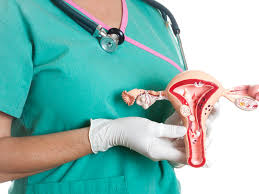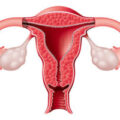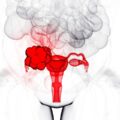Abortion is the removal of pregnancy tissue, products of conception or the fetus and placenta (afterbirth) from the uterus. In general, the terms fetus and placenta are used after eight weeks of pregnancy. Pregnancy tissue and products of conception refer to tissue produced by the union of an egg and sperm before eight weeks. Other terms for an abortion include elective abortion, induced abortion, termination of pregnancy and therapeutic abortion.
According to the World Health Organization, abortions are safe when they are carried out with a method that is recommended by WHO and that is appropriate to the pregnancy duration, and when the person carrying out the abortion has the necessary skills. Such abortions can be done using tablets (medical abortion) or a simple outpatient procedure.
When women with unwanted pregnancies do not have access to safe abortion, they often resort to unsafe abortion. An abortion is unsafe when it is carried out either by a person lacking the necessary skills or in an environment that does not conform to minimal medical standards, or both. Characteristics of an unsafe abortion touch upon inappropriate circumstances before, during or after an abortion. Unsafe abortion can lead to immediate health risks – including death – as well as long-term complications, affecting women’s physical and mental health and well-being throughout her life-course. It also has financial implications for women and communities.
Unsafe abortion procedures may involve the insertion of an object or substance (root, twig, or catheter or traditional concoction) into the uterus; dilatation and curettage performed incorrectly by an unskilled provider; ingestion of harmful substances; and application of external force.
How To Clean Uterus After An Abortion Naturally
The uterus is the hollow muscular organ located in the female pelvis between the bladder and rectum. These steps will help to increase your chances of a successful pregnancy the next time around. Here is how to clean uterus after a Abortion naturally;
Eat High Nutrient Foods
One of the single best things you can do for yourself after Abortion is to nourish your body with healthy foods. The body will be going through a lot of changes physically, the mind may feel overwhelmed and exhausted and you may be an emotional wreck. Nourishing your body with simple, quick whole foods is vital. Because you may lose more blood than usual, you will want to increase your intake of iron rich foods as well. Think of foods rich in vitamins and minerals; foods that will help support energy levels and body function. Soups, smoothies and stews come to mind. These foods are easy to digest and can be easy to prepare. Plus they are usually filled with a variety of nourishing whole foods. Eat iron rich foods such as bison, chicken, eggs, lean red meat, chicken or turkey, Atlantic wild salmon, pumpkin and sunflower seeds, beans, nettles, raspberry leaf, seaweed, dark leafy greens, beets, lima beans, Brussels sprouts and broccoli, Turkish apricots (unsulphured) and quinoa.
Reduce Stress
Abortion brings up a lot of emotions: anger, fear, guilt, sadness and worry. What did I do wrong? Is my body capable? Why did this happen? What can I do to prevent another Abortion from happening? All of these thoughts racing through your mind can be very stressful. Managing that stress is an essential part of your recovery, especially for your heart. Allow yourself time to heal the pain and longing your mind, body and soul are experiencing. Be selfish, take the time you need to nurture yourself. Make time to reduce stress and promote overall well-being. We are more than our physical bodies, treating yourself holistically is going to greatly improve your chances of healing, so you can move toward a successful, healthy pregnancy.
Eat Menstruation inducing food
Ginger: Ginger is a traditional remedy for inducing periods and is believed to cause uterine contractions. However, this remains unproven by scientific research. Ginger is unpleasant to eat raw, so the easiest way to take it is to make ginger tea. To use this method, boil a fresh piece of peeled, sliced ginger in a pan of water for five to seven minutes. Strain the tea and add honey or sugar to taste before drinking.
Pineapple: Pineapple is a rich source of bromelain, an enzyme believed to affect estrogen and other hormones. A 2017 study suggests that bromelain may help reduce inflammation. This means it could help causes of irregular periods related to inflammation.
Try these herbs
There are specific herbs that when combined together may support healthy Abortion recovery. These herbs focus on supporting healthy circulation to the reproductive organs, so that the Abortion is complete, anti-inflammatory herbs to help prevent cramping and uterine spasm, so pain is reduced and the uterus can work efficiently. In addition specific herbs help to promote emotional wellbeing, curb heavy bleeding, and promote hormonal balance to help get your cycle back on track. These herbs are best used for up to six weeks after Abortion has occurred they include;
Angelica: Angelica is an excellent warming herb that increases circulation, dispels cold from the reproductive organs, while supporting the nervous system, promoting relaxation, peaceful thoughts, and reducing anxiety. It is a uterine antispasmodic, supports general weakness and stimulates immune system function. This herb is specific for digestion support, which is vital for Abortion recovery. All of these actions support vital Abortion recovery with well-rounded body system stimulation.
Black Cohosh root (Actaea racemosa): Black cohosh is anti-inflammatory and helps to relax the uterus, which reduces uterine pain and spasm in both the smooth muscles. This herb promotes healthy blood flow to the pelvic area, which may be helpful in moving the Abortion along. For post-Abortion recovery, Black cohosh also helps to tone the pelvic floor muscles, through stimulation of mild pelvic floor muscle contraction. As shared by Yale trained MD, midwife and herbalist Aviva Romm in her 2009 thesis, Black cohosh (often in combination with other herbs) has been used for hundreds of years by trained herbalists and midwives to help promote calm, regular uterine contractions. Uterine contractions are important to help prevent retention of pregnancy product post Abortion, and get the uterus back to its pre-pregnancy state. This herb may help promote regulation of the menstrual cycle, aiding the body in getting the cycle back on track post-Abortion.
Yarrow leaf/flower (Achillea millefolium): Yarrow promotes circulation, yet is extremely astringent, stopping excessive blood flow. It is an herb of opposites, it promotes sweating and detoxification, but strengthens and tightens tissues. This is excellent for Abortion recovery. It will help to get the reproductive organs and surrounding tissues ready for your next pregnancy. Yarrow relieves inflammation and congestion of the uterus, which aids in pain reduction. Yarrow is one of the best herbs to curb heavy bleeding. It may help to move the Abortion along, so you can get back to tending to your life.
Vitex also known as Chaste Tree Berry (Vitex agnus-castus): Vitex has a regulating effect on the hormonal feedback loop, mainly the pituitary gland. This kind of support may help to get your hormones back on track to regulating the menstrual cycle once again.
Dong quai: Dong quai is a herb native to China and a popular herbal remedy that’s been used for hundreds of years. It’s thought to help induce a period by improving blood flow to the pelvis as well as by stimulating the muscles in the uterus and triggering uterine contractions. You can purchase dong quai in capsule or powder form online.
St. John’s wort flower, upper aerial parts (Hypericum perforatum): St. John’s wort may help to reduce nervous excitement and anxiety. It is a mild sedative that helps to relieve mild depression; aids the body in “lifting the spirit”. and also supports prevention of infection and is anti-inflammatory.
Caution: This herb should not be used if you are on antidepressants, nor should be combined with birth control pill use. Some studies have shown it lessens the effects of birth control use. SEE: How To Clean Uterus After A Miscarriage Naturally






